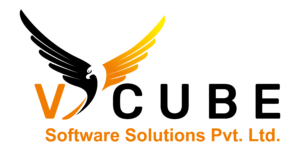MERN STACK DEVELOPEMENT
MERN STACK DEVELOPEMENT
MERN is one of several MEAN stack (MongoDB Express Angular Node) variants in which the traditional Angular.js frontend framework is replaced with React.js. MEVN (MongoDB, Express, Vue, Node) is another variant, and really any frontend JavaScript framework can work.Node.js is a popular and powerful JavaScript server platform, and Express.js is a server-side web framework. Regardless of which variant you choose, ME(RVA)N is the best way to work with JavaScript and JSON from start to finish.
DURATION:60 days

Course's Key Highlights
![]() 100+ hours of learning
100+ hours of learning![]() Real-time industry professionals curate the course.
Real-time industry professionals curate the course.
![]() Internships and live projects
Internships and live projects
![]() A cutting-edge training facility
A cutting-edge training facility
![]() Dedicated staff of placement experts
Dedicated staff of placement experts
![]() Placement is guaranteed 100 percent Assistance
Placement is guaranteed 100 percent Assistance
![]() 28+ Skills That Are Useful in the Workplace
28+ Skills That Are Useful in the Workplace
![]() Trainers with a minimum of 12 years of experience
Trainers with a minimum of 12 years of experience
![]() Videos and back-up classes
Videos and back-up classes
![]() Subject Matter Experts Deliver Guest Lectures
Subject Matter Experts Deliver Guest Lectures
Description for the MERN Stack
Why MERN Stack is so popular?
The MERN stack’s top tier is React.js, a declarative JavaScript framework for creating dynamic client-side HTML applications. React allows you to create complex interfaces by connecting simple Components to data on your backend server and rendering them as HTML.
React’s strong suit is handling stateful, data-driven interfaces with minimal code and pain, and it has all the bells and whistles you’d expect from a modern web framework: great form support, error handling, events, lists, and more.
Curriculum for the Mern Stack
WEB TECHNOLOGIES
- Introduction to web technologies
- Introduction to web applications
- What is FULL, MEAN, MERN Stack
- Editors
HTML
- Introduction
- Layers in web application
- Tags, attributes
- Programming
CSS
- Introduction
- Selectors and types of selectors
- Font, text, border, images
- Properties
- Class rules
- Layouts with CSS
- Absolute, relative, fixed Positioning
- Float, clear
JAVASCRIPT
- Introduction
- Programming languages
- Uses of JavaScript
- Keywords, operators
- Browser objects, JavaScript objects
- Dialogs
- Events
- Basic programming
- Functions
- Let, const keywords
- Nested functions, Closures
- Anonymous functions
- Function expressions
- Hoisting in JavaScript
- animations
- Validations
- AJAX
DOM (document object model)
- Introduction
- Types of DOM
- Uses
- Properties and methods
- programming
JQUERY
- Introduction to JavaScript libraries
- Advantages
- Functions and Methods
- Selectors, custom selectors
- Validations
- DOM
- Animations
- AJAX
BOOTSTRAP
- Introduction
- Responsive design
- Classes
- Containers
- Colors, jumbotran, navbar
- Forms, buttons, cards, modals
- Carousel, images
DATA FORMATS
- XML
- JSON
- JSON Data structures
- Difference between XML and JSON
PROJECT
- Project concept will be give and you have to work on that suggestions will be give and progress will be monitored
TYPESCRIPT
- Introduction
- Installing Typescript
- Keywords, types, operators
- Programming
- Functions and types
- Interfaces
- classes
ANGUALAR
- Introduction
- Single page applications
- Typescript
- Installation and angular CLI
- Components
- Directives
- Angular Forms
- Form validations
- Data binding
- Routing and navigation
- Using jQuery and bootstrap
- Dependency Injection
- Security
- Services
- AJAX
EXPRESS
- Introduction
- MVC pattern
- Implementing cookies and session
- Creating actions
- Defining routes
- http authentication
- using RESTful services
NODEJS
- Introduction
- Installation
- NPM
- CLI and REPL
- Modules
- Asynchronous programming and callbacks
- Streams and Buffers
- Web server and creating web server
- Networking
- Sending Email
- Database connectivity
- Using Mongo, MySQL
- Debugging NodeJS applications
MONGODB
- Introduction to databases
- No SQL databases
- Installation of MongoDB
- Working with MongoDB
- MongoDB document
- Data modelling
- MongoDB with JavaScript
- Indexes
- Administering databases
Upskill & Reskill For Your Future With Our Software Courses
Mern Stack Training in Hyderabad

Quick Links
- Home
- About Us
- Courses
- Contact Us
Other Pages
Contact Info
- 2nd Floor Above Raymond’s Clothing Store KPHB, Phase-1, Kukatpally, Hyderabad
- +91 7675070124, +91 9059456742
- contact@vcubegroup.com
